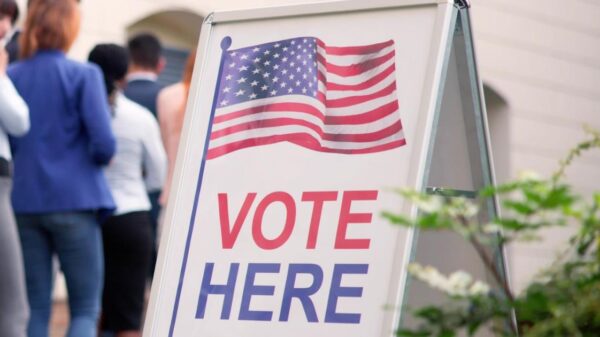A bill from the Florida delegation to help the victims of human trafficking is picking up support.
Back in November, U.S. Rep. Ross Spano, R-Fla., with the support of U.S. Rep. Alcee Hastings, D-Fla., brought out the “HOPE for Victims of Human Trafficking Act” which “institutes several provisions to protect human trafficking victims in the judicial process.”
The proposal has strong support from the Sunshine State as U.S. Rep. Ted Deutch, D-Fla., U.S. Rep. Mario Díaz-Balart, R-Fla., and U.S. Rep. Michael Waltz, R-Fla., are all behind it.
“Too often, victims of human trafficking are convicted of crimes directly related to being forced into this modern-day slavery. It is hard enough for them to heal from their trauma and rebuild their lives, but to unnecessarily burden them with legal issues and expenses can be overwhelming. This bill would provide hope to those who need it most by helping ensure crimes related to being a victim of trafficking don’t follow them throughout their lives. It is the compassionate approach and the right approach,” said Spano when he introduced the proposal.
“My home state of Florida has one of the highest reported cases of human trafficking in the country. To put an end to human trafficking in Florida and across our nation, it is vital that we not only support prevention efforts, but also understand and address the unique challenges that survivors face in the legal system as they try to recover from the trauma of this form of modern-day slavery. I look forward to working with Congressman Spano to pass this important legislation to ensure that survivors of human trafficking are not being set-up for failure as they work so bravely to rebuild their lives,” said Hastings.
Spano’s office offered some of the details of the proposal.
“The bill makes it easier for victims of human trafficking to qualify for the affirmative defense of coercion for certain offenses committed while they were being trafficked. It does so by creating a rebuttable presumption that victims are presumed to have committed such offenses under coercion unless the prosecution proves otherwise,” Spano’s office noted. “The bill also includes a process for sealing the records of those who assert an affirmative defense under this bill, along with a provision stating that failure to assert this defense cannot disqualify them from federal programs that aid trafficking victims.”
The bill has the support of Shared Hope International, Rights4Girls, the National Center on Sexual Exploitation, the National Center for Missing and Exploited Children, Selah Freedom, Selah Way Foundation and the American Association of Child and Adolescent Psychiatry.
Spano reeled in more support for the bill last month as Hillsborough County Sheriff Chad Chronister and the Major Cities Chiefs Association (MCCA) backed the proposal.
This week, Spano gathered more support for his proposal as Pinellas County Sheriff Bob Gualtieri and the National Association of Police Organizations (NAPO) backed the bill.
“I’m thrilled to have the support of NAPO and Pinellas County Sherriff Gualtieri,” Spano said on Thursday. “Human trafficking is a horrible practice that must be stopped, and my legislation is designed to help those who have been devastated by this activity.”
“The HOPE Act can help victims of human trafficking by providing a solid footing for a new life. Not only can victims receive amnesty for crimes committed while being trafficked, but their records can also be sealed under this law. I urge the passage of H.R. 5080 to help victims to break free from the coercion and fraud of trafficking and take back their lives,” said Gualtieri.
“Human trafficking is a form of modern-day slavery and its victims should be afforded every protection. The HOPE for Victims of Human Trafficking Act follows the lead of a majority of states that have rightfully acted to help protect victims from being punished for non-violent crimes their traffickers compelled them to commit. The National Association of Police Organizations (NAPO) thanks Representative Spano for introducing this important legislation and we look for to working with him to see it enacted into law,” said NAPO Executive Director Bill Johnson.
The bill is currently before the U.S. House Crime, Terrorism, and Homeland Security Subcommittee and the U.S. House Foreign Affairs Committee. So far, there is no counterpart over in the U.S. Senate.
Reach Kevin Derby at kevin.derby@floridadaily.com.





















